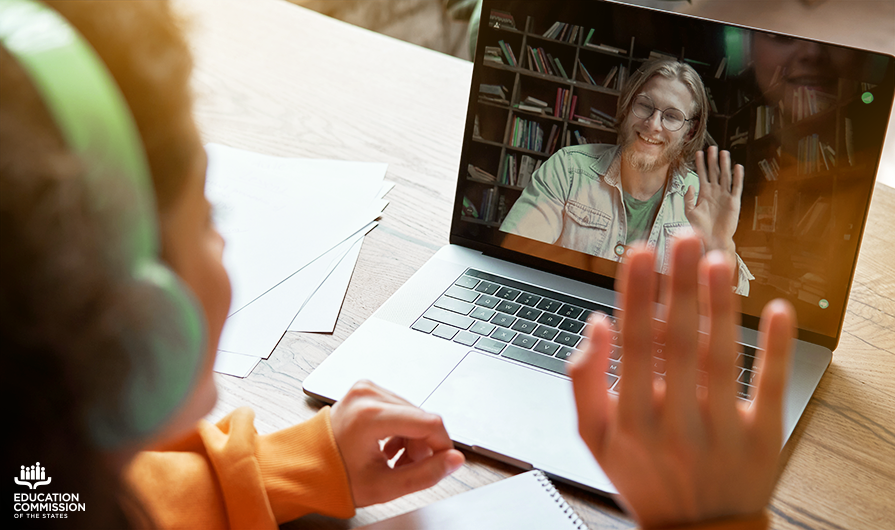Policymakers know the 2020-21 school year feels different for all educators — but especially for those who have been building relationships with students virtually as they implement remote instruction in response to the COVID-19 pandemic. Remote learning has been challenging across all grade levels, and it’s been a particular struggle in the early childhood context. State leaders and practitioners alike have grappled with ensuring that developmentally appropriate practice underpins daily activities and interactions in a traditional in-person environment — let alone in a distance or hybrid learning setting.
As we acknowledge that the days of resisting screen time altogether are over, it’s important for policymakers to consider research on what works for young children and what is reasonable for teachers and families. This past year has proven that embracing developmentally appropriate practice and a whole-child approach in remote learning efforts presents an opportunity to reach more students, enhance family engagement and increase educator efficiency.
As such, it is important to support proven best practices through policy and programmatic guidelines. Effective remote learning embodies what we know about child development and the types of interactions at the heart of meaningful early learning and ensures that teachers, parents and caregivers are empowered by technology to provide the highest quality and most personalized instruction possible.
Below are three policy considerations that state leaders can use to support young learners:
-
- Provide a vetted list of research-based curricula that support high-quality, equitable and accessible instruction. Digital curricula should include customizable experiences and investigations that are focused on everyday items in the home and community.
-
- Provide access to high-quality digital learning experiences for children that are aligned to learning objectives and directed by parents and teachers. A deliberate and intentionally designed role for child-led digital learning experiences is important to help extend the learning environment as an additional instructional modality and engage students while keeping teachers and parents at the center of the process.
-
- Fund ongoing professional development. Online professional learning opportunities support continued educator growth and sharing of best practices as teachers navigate new learning configurations and resources.
Educators need support to use robust, structured daily planning and best practices that create learning experiences that strengthen children’s creativity, confidence and critical thinking. The goal of remote ECE programs is to maximize beyond-the-screen engagement with the requisite online support for teachers and parents. For examples of strong state-level pre-K distance learning implementations, education stakeholders can look to states like Alabama, North Carolina and Texas. Teachers in these states are being empowered with remote learning tools like the Teaching Strategies Creative Curriculum Cloud resources and extensive professional development.
Lastly, but perhaps most importantly, families can be welcomed as partners and co-creators of high-quality learning opportunities for children beyond the school setting. A distance learning solution can cultivate family partnerships and ongoing communication, including aligned family activities and video-demonstrations that help parents turn daily routines and interactions with their children into learning opportunities. This approach ensures children are engaged in ways that are relevant to the cultures of their families and meaningful to their individual development.




